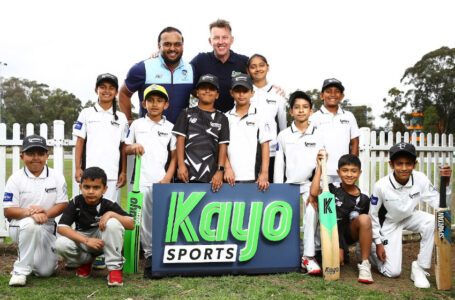Notes for The New Age Mom

Immigrating to a new country can be a stressful personal experience, but even more so if you have growing children. As a mother, you will find that moving to a new country increases ‘family time’, but it can also lead to a lot of confusion in your children. You may feel out of depth at times, too, because the choice of whether to let your children grow up as Australians or to instil in them ‘Indian values’ is a question all parents ask themselves. Here are a few ways in which you can bring some balance to that internal debate.
Attachment
There should be an instinctive, natural side to parenting, the philosophy being that your children’s emotional and physical needs should be monitored and attended to closely. The idea is to build an atmosphere of trust and bonding. This is great because if your relationship begins on the foundations of warmth and love, the child will feel more confident about exploring the world and will grow up with minimal self-esteem issues. However, be aware that taking this too far is not recommended; some mothers carry their children in slings so as not to ever be distanced from them. This could result in the child growing up to be vulnerable and afraid to take risks.
Tiger
Tiger mums are big on discipline, and often
Helicopter
A helicopter parent is so called because she is forever hovering over her child. They pay close attention to what their child is doing, and they take every step in order to keep him safe and protected. When the child has a fall, the parents make a big fuss, and when he gets a bad mark in school, the parent is forever ready to argue his case with the teachers at school. In short, helicopter parents mollycoddle their kids. Children brought up this way know that their parents always have their backs, and in return the parents are justified in thinking that they care for the child. But children also need to taste defeat, hurt, challenges and setbacks to learn and grow. By constantly protecting them, you rob them of the opportunity to learn by experiencing failure.
Free-range
In this approach to parenting, children don’t have boundaries and are allowed to explore their world as and how they wish. These parents are unlikely to pressurise their child about results, and are quite laid-back in their approach to discipline. The good thing about this strategy is that kids develop the confidence they need to live independently in the world, and they often become self-taught at a variety of things. However, such an approach also comes with the risk of the child not understanding the boundaries of ethical behaviour. Free-range kids are often found to be delinquents, and are lacking in social intelligence and empathy, which requires a certain amount of respect for the bigger picture.
Dolphin
In the dolphin approach to parenting, children are treated not like subordinates but like equals. Dolphin parents are generally a child’s best friends while growing up, and are playful, upbeat and social. This is obviously good because it strengthens the bond between parents and kids, and it can make every family day a precious occasion to remember. Such families often have in-jokes at every gathering over which they laugh a lot. The problem with this strategy is that children grow up without an authority figure or a role-model. Also, on occasions when discipline is important and the parent has to take on the role of an authoritarian, children can become confused and rebel, thereby challenging the nature of the relationship.
As you may have expected, there is no one way to bring up a child. Which of the above five techniques you will adopt will depend on your character as much as your child’s. For a healthy relationship with your children, though, and in order to bring them as responsible citizens, we recommend that you use a combination of the five listed approaches as and how the situation demands. Children need support, discipline, love, authority and friendliness in equal measures. The trick is in deciding what to give them when, and how.





